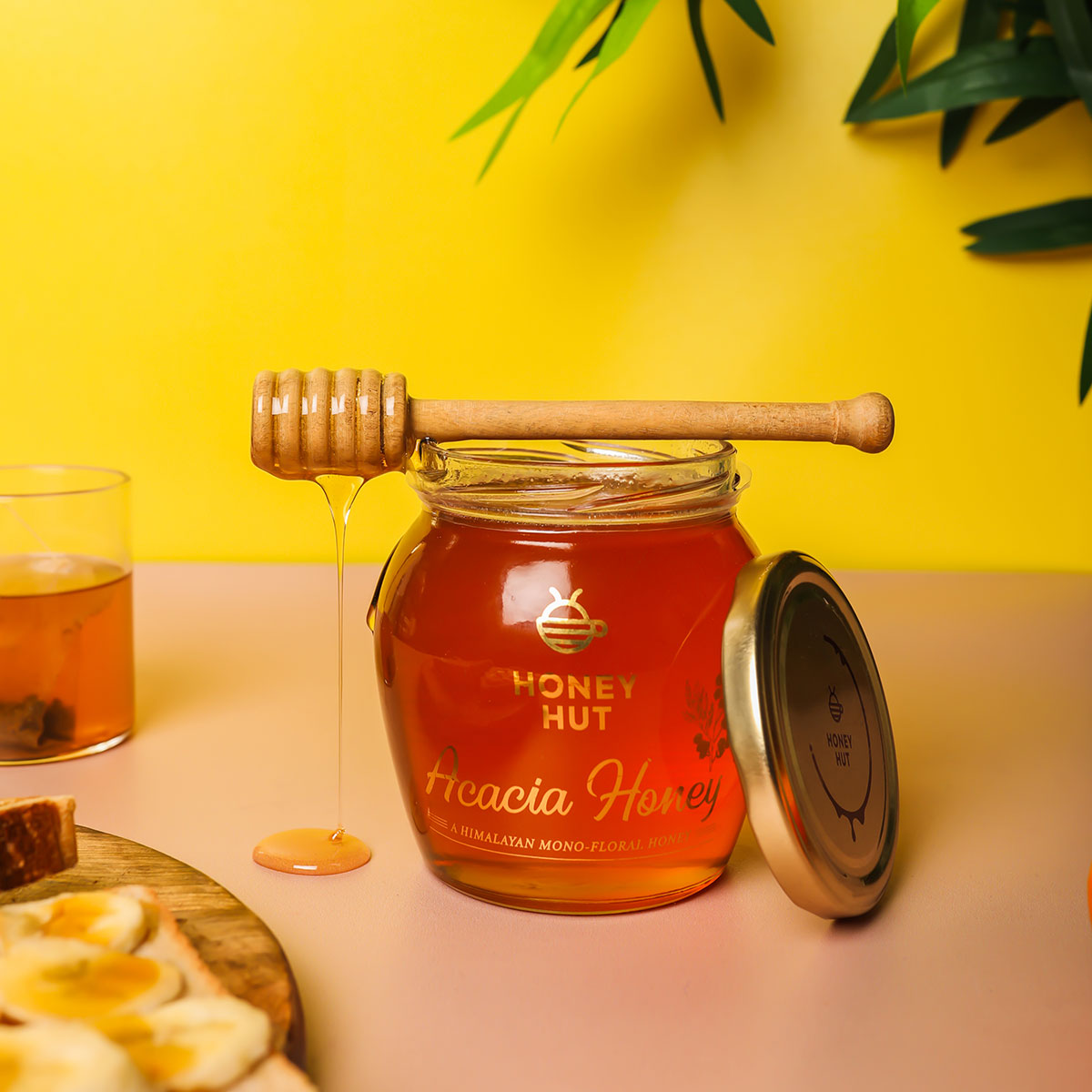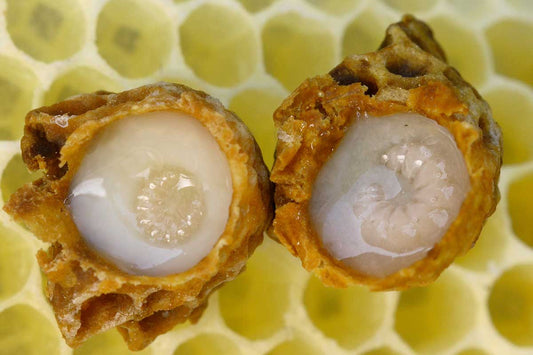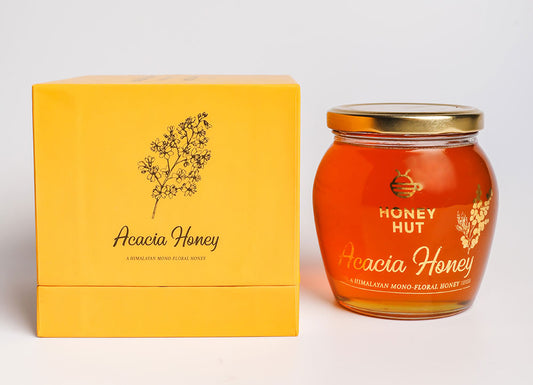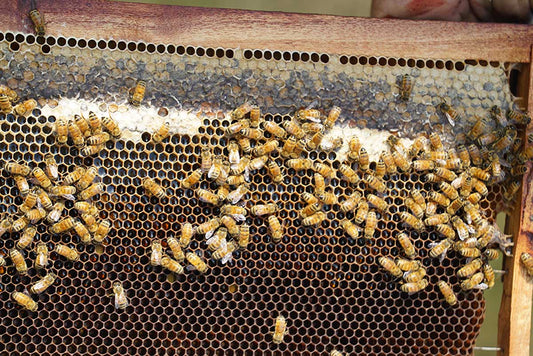Bees are extraordinary creatures, aren't they? Not only do they produce the sweet golden nectar we know as honey, but they also create another incredible substance known as bee pollen. While honey often steals the spotlight, bee pollen quietly holds its own as a powerhouse of nutrition and wellness. Honey acts as a carrier for bee pollen, making it more palatable and easier to consume. Additionally, the enzymes present in honey may enhance the bioavailability of nutrients from bee pollen, allowing for better absorption by the body. This synergy amplifies the benefits of both substances, making them more effective when consumed together.
The Bee's Bounty: What is Bee Pollen?
Bee pollen is the tiny, granular substance collected by bees from the stamen of flowering plants. Collected by honeybees as they forage for nectar, bee pollen serves as a crucial food source for the hive. Interestingly, bee pollen isn't just a by-product of honey production; it's a nutrient powerhouse packed with protein, vitamins, minerals, antioxidants, and phytonutrients.
Health Benefits of Bee Pollen:
One of the most renowned qualities of bee pollen is its ability to boost energy levels and alleviate fatigue. Packed with carbohydrates, protein, and B vitamins, bee pollen provides a natural energy boost without the crash that often accompanies caffeine or sugary snacks. Many athletes and fitness enthusiasts incorporate bee pollen into their routines to enhance stamina and endurance.
Moreover, bee pollen is believed to strengthen the immune system, helping the body fight off infections and illnesses. Its abundance of vitamins, minerals, and antioxidants supports overall immune function, keeping you healthy and resilient, especially during cold and flu season.

Nutritional values of Bee Pollen:
Despite its small size, bee pollen is loaded with an impressive array of nutrients. It's rich in vitamins, minerals, proteins, lipids, and carbohydrates, making it a complete food in its own right. Bee pollen is also rich in protein, making it a valuable addition to vegetarian or vegan diets. Additionally, it contains antioxidants, which help protect the body from harmful free radicals. Here's a glimpse of what bee pollen contains:
- Proteins: Bee pollen contains all essential amino acids required by the human body, making it a valuable protein source.
- Vitamins: It's packed with various vitamins, including B-complex vitamins, vitamin C, vitamin A, and beta-carotene, which are essential for overall health and wellbeing.
- Minerals: Bee pollen is abundant in minerals like calcium, magnesium, potassium, zinc, and selenium, crucial for maintaining various bodily functions.
- Antioxidants: Rich in antioxidants like flavonoids and carotenoids, bee pollen helps combat oxidative stress and reduce inflammation.
- Enzymes: Enzymes present in bee pollen aid in digestion and nutrient absorption, promoting overall gut health.
- Fatty Acids: It contains beneficial fatty acids, including omega-3 and omega-6 fatty acids, crucial for cardiovascular health and brain function.
- Phytonutrients: These bioactive compounds contribute to the health-promoting properties of bee pollen, supporting immune function and overall well-being.
How to Enjoy Bee Pollen?
Adding bee pollen to your diet is easy and versatile. You can sprinkle it over yoghurt or oatmeal, blend it into smoothies, or mix it into salad dressings for a nutritious boost. Some people prefer to consume it in its raw form, enjoying its slightly sweet and floral taste on its own. Just remember to start with small amounts, as some individuals may experience allergic reactions to bee pollen.

How to Incorporate Bee Pollen and Honey into Your Diet?
Bee pollen can be consumed in various ways, including:
- Sprinkled Over Foods: Add bee pollen as a topping to yoghurt, oatmeal, smoothie bowls, or salads for a nutritional boost and a touch of sweetness.Or Stir bee pollen into honey to create a nutrient-rich spread for toast or crackers.
- Mixed into Beverages: Blend bee pollen into smoothies, juices, or herbal teas to incorporate its benefits into your daily routine.
- As a Supplement: Bee pollen supplements are available in capsule or powder form for convenient daily intake.
In conclusion, Bee pollen stands as a testament to the incredible power of nature's bounty. With its unparalleled nutritional profile and numerous health benefits, bee pollen continues to captivate health enthusiasts and nutritionists alike. Whether you're looking to boost your immunity, enhance your energy levels, or simply nourish your body with wholesome nutrients, bee pollen offers a natural solution straight from the hive. Embrace the nutritional treasures of bee pollen and unlock its full potential for vibrant health and vitality.










